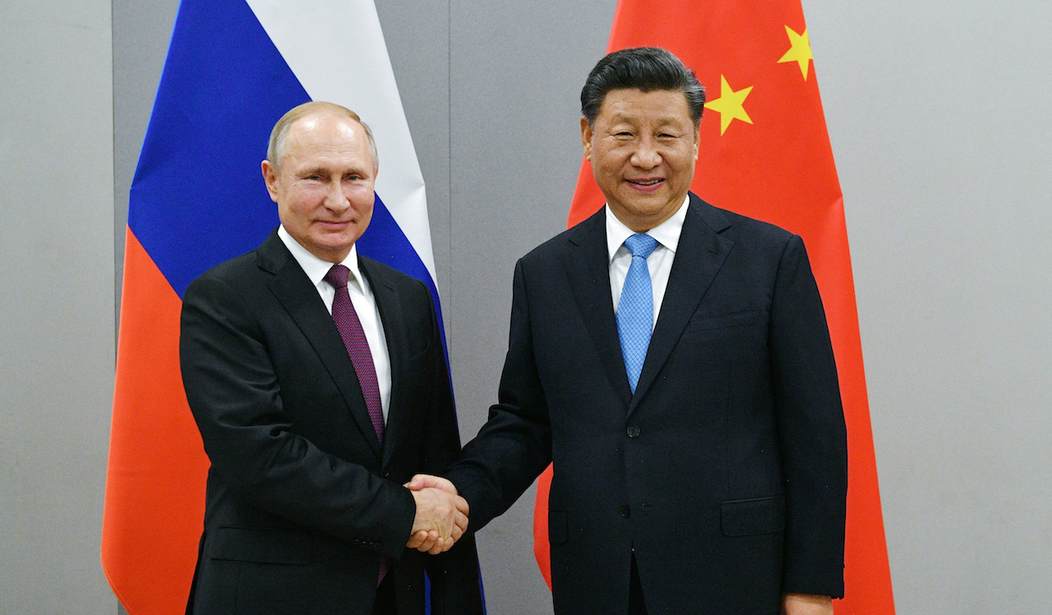Venezuelan dictator Nicolas Maduro’s oppressive rule has not only expedited the complete collapse of his nation’s economy and civil society; the
President Donald Trump is completely justified in sanctioning the Maduro regime in an effort to oust the ruthless dictator and begin a process to free the Venezuelan people.
But that punishment mentality can’t go too far. The president should continue to ensure that U.S. companies operating in
There are those who hope to see America exit Venezuela entirely in order to bring about what they believe will be a quick collapse of Maduro’s regime. However, such a belief ignores Maduro’s present ability to finance his government. Maduro’s money is not all tied to oil drilling.
As oil revenue has decrease Maduro’s regime has turned to criminal activity, including illegal gold mining, illegal logging of the rainforests, and drug trafficking, in addition to widening paramilitary activity and accepting economic assistance from countries like Russia, Cuba, and China.
Recommended
The Maduro administration has relied on illegal gold mining in the country as part of a vast, growing network of criminal enterprises in order to finance his government. Illegal mining is run by criminal organizations, including Colombian Rebels who take advantage of the country’s resources and exploit the labor of the Venezuelan people. These illegal mining operations allow Maduro to sell to foreign companies and, since ramping up gold production at the end of 2018, generate about $5 billion a year. Sadly, major parts of the environment have been wrecked by the gold mining including Heritage Protected Areas and mining is disrupting local communities and damaging the Amazon river.
Illegal logging of the country’s rainforests is another way Maduro is financing his corroding government. The Venezuelan military working for the Maduro administration exploits the country’s vast rainforests and exports material to other countries.
Criminal groups associated with Maduro have been smuggling drugs across the hemisphere for years and, in fact, are often supported by the regime.
First lady Cilia Flores’s nephews have been convicted on drug trafficking charges in the U.S. and were aided by senior Venezuelan officials. Other officials like former Vice President Tareck El Aissami have been sanctioned by the United States for their involvement in the drug trade. These groups have developed strategies like bribing the local population with food or building secret runways to get around the law and grow their drug network.
The drug trade generated $40 billion in revenue in 2018 and estimates expect that to double in 2019 due to increased activity, which is likely due to Maduro’s need for cash.
All of this is made possible through the use of paramilitary teams, up to 100,000 operatives, all across the country that strike fear into the hearts of the Venezuelan people, ensuring they remain powerless to challenge any illegal activity. Maduro has positioned Venezuela as the epicenter of the Bolivarian Joint Criminal Enterprise, a multinational criminal enterprise, that has moved up to $43 billion in the last decade.
Sanctions on Venezuela would be much more effective if competing nations like Russia and China weren’t propping up the administration through billions of dollars in foreign funding. These countries care little about the plight of the Venezuelan people; they simply want to exploit Venezuela’s oil fields, which are the largest in the world. Over the last several decades China has invested billions in Venezuela and in the last few years Russia has loaned Maduro $17 billion. If American energy
Driving American companies out of Venezuela will not benefit the desperate people of this troubled nation or improve our national security interests. Rather, it will hurt American consumers and workers. Sanctioning American companies operating in Venezuela would be a losing situation for everyone involved.
For the sake of protecting American jobs and much-needed energy resources, the U.S. must ensure continued waivers and exemptions for American companies operating in Venezuela. The futures of America and Venezuela depend on it.
Sean Spicer has served as White House press secretary and chief strategist of the Republican National Committee, and is a senior adviser to America First Action.

























Join the conversation as a VIP Member